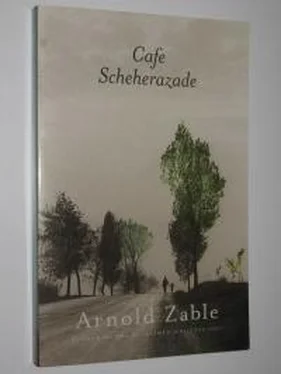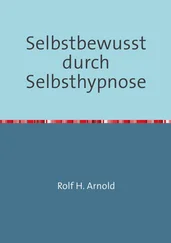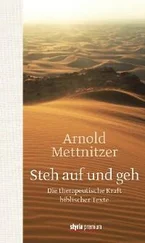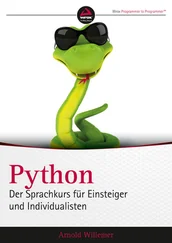Arnold Zable - Cafe Scheherazade
Здесь есть возможность читать онлайн «Arnold Zable - Cafe Scheherazade» весь текст электронной книги совершенно бесплатно (целиком полную версию без сокращений). В некоторых случаях можно слушать аудио, скачать через торрент в формате fb2 и присутствует краткое содержание. Город: Melbourne, Год выпуска: 2001, Издательство: Text Publishing Company, Жанр: Проза, на английском языке. Описание произведения, (предисловие) а так же отзывы посетителей доступны на портале библиотеки ЛибКат.
- Название:Cafe Scheherazade
- Автор:
- Издательство:Text Publishing Company
- Жанр:
- Год:2001
- Город:Melbourne
- ISBN:нет данных
- Рейтинг книги:4 / 5. Голосов: 1
-
Избранное:Добавить в избранное
- Отзывы:
-
Ваша оценка:
- 80
- 1
- 2
- 3
- 4
- 5
Cafe Scheherazade: краткое содержание, описание и аннотация
Предлагаем к чтению аннотацию, описание, краткое содержание или предисловие (зависит от того, что написал сам автор книги «Cafe Scheherazade»). Если вы не нашли необходимую информацию о книге — напишите в комментариях, мы постараемся отыскать её.
Cafe Scheherazade — читать онлайн бесплатно полную книгу (весь текст) целиком
Ниже представлен текст книги, разбитый по страницам. Система сохранения места последней прочитанной страницы, позволяет с удобством читать онлайн бесплатно книгу «Cafe Scheherazade», без необходимости каждый раз заново искать на чём Вы остановились. Поставьте закладку, и сможете в любой момент перейти на страницу, на которой закончили чтение.
Интервал:
Закладка:
122
And through it all Zalman walked. He walked beside barbed-wire fences and past soldiers clutching bayonets. He walked the lanes of Hongkew, and beyond, into the city at large, whenever he was able to wrangle a pass from the Japanese police. He walked from dawn to dusk, day after week after month, and he returned each night to the windowless room that was his home. This was his one constant, a family, three people to whom he had grown close. But the room was oppressive. Zalman could not wait for the night curfew to end; he would often leave before first light.
It was at dawn that he came upon the image he was looking for. It emerged from a damp fog that lingered over Suzhou Creek. Boats hovered in the mist. A solitary junk moved by, weighed down beneath a mountainous cargo of hay.
On the banks of the creek, Zalman saw a figure trudging over a desolate stretch of earth. In his right hand he carried a birdcage. The old man came to a halt by a tree. He took off his jacket and hung it on the lower branches beside the cage. The trill of a songbird flowed through the bars.
The old man lifted his arms, lowered his upper body and bent his knees. His back remained upright as he glided from form to form, in a slow-motion dance that seemed to defy the routine laws of movement. His legs remained bent at the knee, so that his lower body seemed anchored to the earth, while his upper body floated free, like a bird in flight.
Zalman followed each movement intently. For a moment Shanghai stood still; and Zalman rediscovered his poise. It was 123 a mere fifteen minutes before the Chinaman ceased his movements.
Unhurried, he put on his jacket, retrieved the birdcage, and trudged back through the rising mist.
Then he was gone; and although Zalman returned, day after day, at the same time, to the same strip of waterfront beside the creek, he never saw the old man again. He had to content himself with the image. He could conjure it at any time; and with it came the comfort of knowing that such moments could still exist.
In June 1944, the first Allied air raids hit Shanghai. American bombers targeted warehouses, factories and munitions dumps with remarkable precision. By early 1945 the allied armies were well on the advance. Manila fell in February. Iwo Jima in March. By
April, Chinese armies were turning their sights back towards
Shanghai.
On a searingly hot July day in 1945, pedestrians on the streets of Hongkew would have glimpsed above them shafts of sunlight reflecting silver from the wings of American planes. A diamond formation of bombers broke away and veered towards the shore.
Sirens signalled the alert. The planes streaked over Hongkew and tilted towards the intersection of Tongshan and Kung Ping roads.
Below them, Zalman and his adopted family joined a frantic rush of refugees into the corridors of a community centre. They had just finished lunch. They huddled in the corridors. 124
Hadassah stayed behind in the kitchen. She remained wedded to her chores. Perhaps this is what saved her.
Zalman retains a clear picture of what ensued. He recalls conversations, word for word. He hears the muffled explosions. He sees the corridor, in detail, as it is thrust into darkness. He remembers the uneasy calm, riddled with dust. Zalman clutched at the man standing next to him.
"Let go of me," said the man.
"We are all covered in dust," said Zalman. "Look. Over there.
There's a light."
"I am wounded," replied the man. And he turned, and ran.
Zalman saw two figures lying nearby. One was Yasha, his surrogate father. He lay motionless. The other, fifteen-year-old Chaim, was covered in blood.
"I can't feel my leg," said Chaim. "Go and see how mother is doing," he added. "Tell her father is dead. Tell her I am wounded. Don't let her see me."
Zalman rushed to the kitchen. "Yasha is dead. Chaim is wounded. I will take care of him. Just stay where you are."
"I will do as you say," Hadassah replied. Her voice seemed distant. She filled a bucket with water seized a brush, sank to her knees, and began to scrub the floor. She scrubbed as if possessed. Zalman was struck by her calmness. She continued to work. She was bent over like a rabbi, lost in prayer, but when she briefly lifted her head, he glimpsed the horror in her eyes.
Zalman returned to the corridor. He lifted Chaim onto a door that had been blown off its hinges. A friend helped him 125 carry the boy out to the streets. They barely registered the panic and the noise. They barely noticed the buildings in flames, the casualties laid out on blankets, the bodies scattered over the centre's vegetable garden.
Rickshaw drivers cleared a passage. At the periphery of his vision Zalman saw corpses strewn over the streets. He glimpsed his Chinese neighbours, as if from afar. They were running with sheets and shirts, towels and skirts, which they tore into bandages as they headed for the wounded.
The two men carrying Chaim were directed to a makeshift aid centre, hastily set up in the grounds of the Ward Road jail.
Charred bodies lay beside the injured: men, women and children huddled together in the prison yard. Above them loomed watchtowers, barred windows and grey walls. Refugee doctors and nurses tended the victims.
Chaim was lifted off the stretcher. Zalman noted the massive wound in the abdomen. He saw the liver, exposed. A young woman, a doctor, knelt down by Chaim's side.
"I will live," murmured the boy.
"Leave him with me," said the doctor "I will take care of him.
And you?"
"There is nothing wrong with me," replied Zalman.
"You are bleeding all over."
For the first time Zalman felt the pain, the numbness in his face. For the first time he observed his own wounds, the shrapnel, the patches of blood.
The doctor injected Zalman with anti-tetanus serum. "I will 126 operate on the boy. Come back in an hour."
"I will live," murmured Chaim.
Zalman returned an hour later to learn that Chaim had briefly regained consciousness; he had died just minutes earlier.
A blazing July day in 1945. The war was all but over. Zalman had lost his second family. There was nowhere to go. There was nothing to hope for. There was no need to hurry. There was nothing to do but walk.
127 vi
Scheherazade is a Babel of languages. Each one has its peculiar melody, its distinct tone. Polish and Russian are cool languages.
They flow like the Dnieper, the Volga, the Vistula, and the River
Bug. German, with its polysyllables, seems to be forever grasping at grandiose abstractions. I hear smatterings of Hungarian and
Romanian, and tongues entirely foreign to my ears. And I register countless varieties of English, seasoned by many accents and tongues.
As for Yiddish, it is the main course. A frantic language, propelled by manic winds and enforced flight, a hybrid, concocted on the run. With bits of this, pieces of that: Slavic, a 129 large dose of Germanic, a hint of the Ukraine, and an echo of the
Asiatic steppes. With residues of biblical Hebrew, and other ancient tongues. It is a language of wanderers, of Gypsies, tsigeiner.
"I am a tsigeiner." says Yossel Bartnowski. "I love to be on the move, always in search of greener fields."
And he sings:
"Carefree is the tsigeiner's life.
Farria!
We do not have the Kaiser, taxes to pay.
130
Farria!
Carefree it is in the forests, green
Where tsigeiners will be dancing soon.
Farria. Farria. Farria. Farria.
Far-ri-ya-ha-ha-ha-ha-ha."
Today Yossel is clothed in varying tones of white. He wears a white shirt and cream slacks, an off-white tie and white shoes.
He places his white-brimmed hat on the table. His blue eyes are darting about, following the ladies moving past on the street. He glances at the patrons entering the cafe, and surveys the chicken schnitzel that the mini-skirted waitress places by his side.
Читать дальшеИнтервал:
Закладка:
Похожие книги на «Cafe Scheherazade»
Представляем Вашему вниманию похожие книги на «Cafe Scheherazade» списком для выбора. Мы отобрали схожую по названию и смыслу литературу в надежде предоставить читателям больше вариантов отыскать новые, интересные, ещё непрочитанные произведения.
Обсуждение, отзывы о книге «Cafe Scheherazade» и просто собственные мнения читателей. Оставьте ваши комментарии, напишите, что Вы думаете о произведении, его смысле или главных героях. Укажите что конкретно понравилось, а что нет, и почему Вы так считаете.












